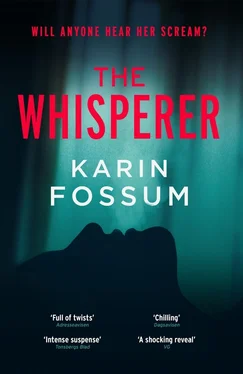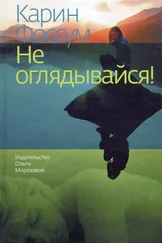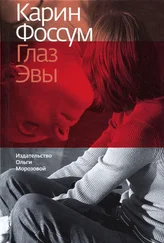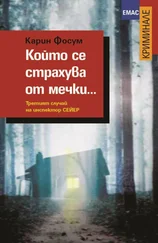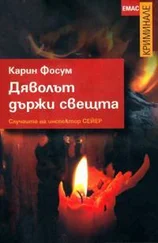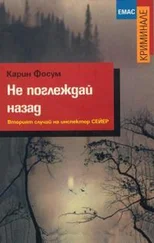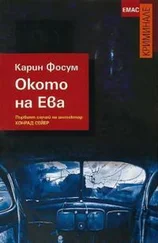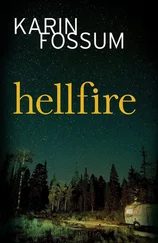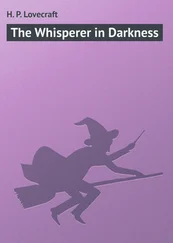Back in the house, she opened the bag of rubbish. The envelope had been pushed down and was pressed against a moist potato peeling, and some eggs that had passed their sell-by date. Some of them had broken. She plucked it out with two fingers and went straight over to the wood burner, put it down on the grey ash beside some charcoal, got the firelighter from the table. But the envelope was damp and would not burn.
Her face came alive as she talked. She captivated him, despite her lack of voice. She radiated sincerity. Every now and then she held up a hand and made a gesture in the air as if to underline something, to help herself, to create the illusion of sound. Her whispering made him lower his own voice. He listened with such intensity that he could no doubt have heard a cat creeping up on its prey.
‘You told no one,’ Sejer said. ‘Not your neighbours, or your colleagues, or Irfan in the shop or anyone else you knew. Nor Rikard Josef in Berlin. Of course the letter you found in your mailbox was a threat. That came from nowhere, like a bolt out of the blue. But you confided in no one.’
Ragna could see his face clearly in the light from the computer screen. The deep lines that ran from his nostrils to the corners of his mouth, the straight eyebrows that had once been dark but now were laced with silver. He was there the whole time, always present and near. He did not take his eyes off her, was never tempted to turn towards the screen, to see what was happening there. His phone flashed red occasionally, but he did not answer. She felt like a fish that had been caught in a net, and she lay softly against the fine mesh. There was a pile of papers on his desk, and a notepad, where he sometimes scribbled something down with such speed that she wondered if he wrote shorthand.
‘It was embarrassing,’ she whispered. ‘I felt ashamed.’
She could see that he was considering her answer. That he did not leap to any conclusions. That he certainly seemed to understand her. What would Lars and Gunnhild and all the others have thought about the letter? What would they have said, how would they have reassured her? Other than smile about it, dismiss it as nonsense? They would never understand how much the letter had unsettled her. It must be something about her, they would think, something that had made some malicious soul choose Ragna Riegel, of all people. Point her out, without pity, tip her balance. It was not random, they would think, because nothing frightens people more than randomness. There had to be a reason, or some form of culpability. If they found no reason, no blame, then anything could happen, then any kind of precaution was pointless — hiding, keeping one’s nose clean.
Ragna observed the inspector thinking. He understood the gravity of the situation, her distress, she could see it in his grey eyes. Not that she had never thought about death. Dear God, she had thought about death. But when she got the letter, she thought about it all the time, from minute to minute. She thought about the envelope that had not been franked. That meant he had driven there, or walked along Kirkelina. He had stopped at her mailbox, stared up at the house, watched for shadows in the window to check if he had been seen. Then he had hurried off into the darkening evening, or night, if it had been night, with his coat collar turned up and his hands deep in his pockets, with a plan, some intention that she could not fathom. She wondered if maybe he had tormented cats when he was a boy. The thought made her shudder.
‘Did you think of anyone in particular?’ Sejer asked. ‘Someone you once knew or had a relationship with, or worked with or a neighbour, someone’s toes you may have stepped on, a distant relative?’
‘I weigh practically nothing,’ Ragna whispered. ‘If I stepped on anyone’s toes, they wouldn’t notice, no more than they would a mouse.’ She pouted when she said ‘mouse’, and smiled at him.
‘You’re certainly not a mouse,’ Sejer said. ‘But there are sensitive souls out there who are offended by the slightest thing. I have to look everywhere, in the past as well. What about Rikard Josef’s father? You haven’t said anything about him yet.’
‘There’s nothing to tell. He would be over seventy now.’
‘So you count the years?’
She felt mortified about everything again. Someone had found her in the multitude and callously turned a spotlight on her, a light she was not able to ignore. The house where she had grown up on Kirkelina, her own little nest that she loved, was now left standing in the autumn dark with all the lights on like an American weatherboard ready for Christmas. She was exposed for all the world to see. Even though she was not guilty of anything, she was convinced that the man who had tormented her had something on her.
For a brief moment, Sejer caught sight of a kind of defiance, as though she wanted to say to him, I know why I’m sitting here but I don’t want to grovel. And he was not asking her to. They would go through this together, he without judging, and she without losing her dignity. That was what he wanted. It was what Ragna needed.
‘Your son,’ Sejer said. ‘Was he the result of a brief relationship?’
‘He’s the result of a single night. I was at a party and I drank far too much. Even though I hid myself away in a corner, one person found me. I didn’t dare let any awkward teenage boys near me. But they didn’t want to be near me anyway, I had none of the things they wanted.’
‘What do you think they wanted?’
‘Don’t ask stupid questions.’
‘So,’ Sejer prompted. ‘One night. And then you never saw him again?’
‘Oh yes, I did, a couple of times.’
‘Do you ever think about him?’
‘Very occasionally. But I have a big chest of drawers in my bedroom, and in the bottom drawer is a photograph that he took of me one day when we were walking through the park. A black-and-white photograph that he enlarged and wanted me to keep. He said that I should look at the photograph and know that I had been seen, that I deserved to be seen. I was never beautiful,’ she hastened to say, ‘not even when I was sixteen, but he somehow managed to catch me at a good moment. In a favourable light. No one else had managed that. I look like an angel in that picture.’ After a pause, she added: ‘He’s a photographer.’
She looked down again, regretted what she had said. She had blown her own trumpet. Saying ‘angel’ was going too far. She blushed violently and did not want to look up again for a good while.
‘But the photograph is still in a drawer? Even though it is the most beautiful version of you that you’ve ever seen?’
‘The photograph,’ she whispered curtly, ‘is nothing more than pure chance. A slight mist. The setting sun. Things like that.’
‘But you haven’t thrown it away. What did you say his name was?’
‘Walther Eriksson. He lives in Stockholm, he’s lived there for years. I guess he’s retired now.’
‘So you do keep track, all the same?’
She looked away. He had never seen such a thin neck, you could probably break it with one hand.
‘My world is very small,’ she admitted. ‘I don’t have much to do with other people, only those from work. I spend a fair amount of time online, and there’s stuff about him there. He’s won a few prizes for his portraits. No, not a few, a lot.’
‘So, a good photographer,’ Sejer said, ‘an excellent one, in fact. Good photographers don’t win prizes because of chance. They have a good eye. A special kind of relationship with their subjects and good timing. They know when to fire.’
He leaned forward, and said emphatically: ‘Sooner or later, that picture should be hung on the wall.’
Читать дальше
